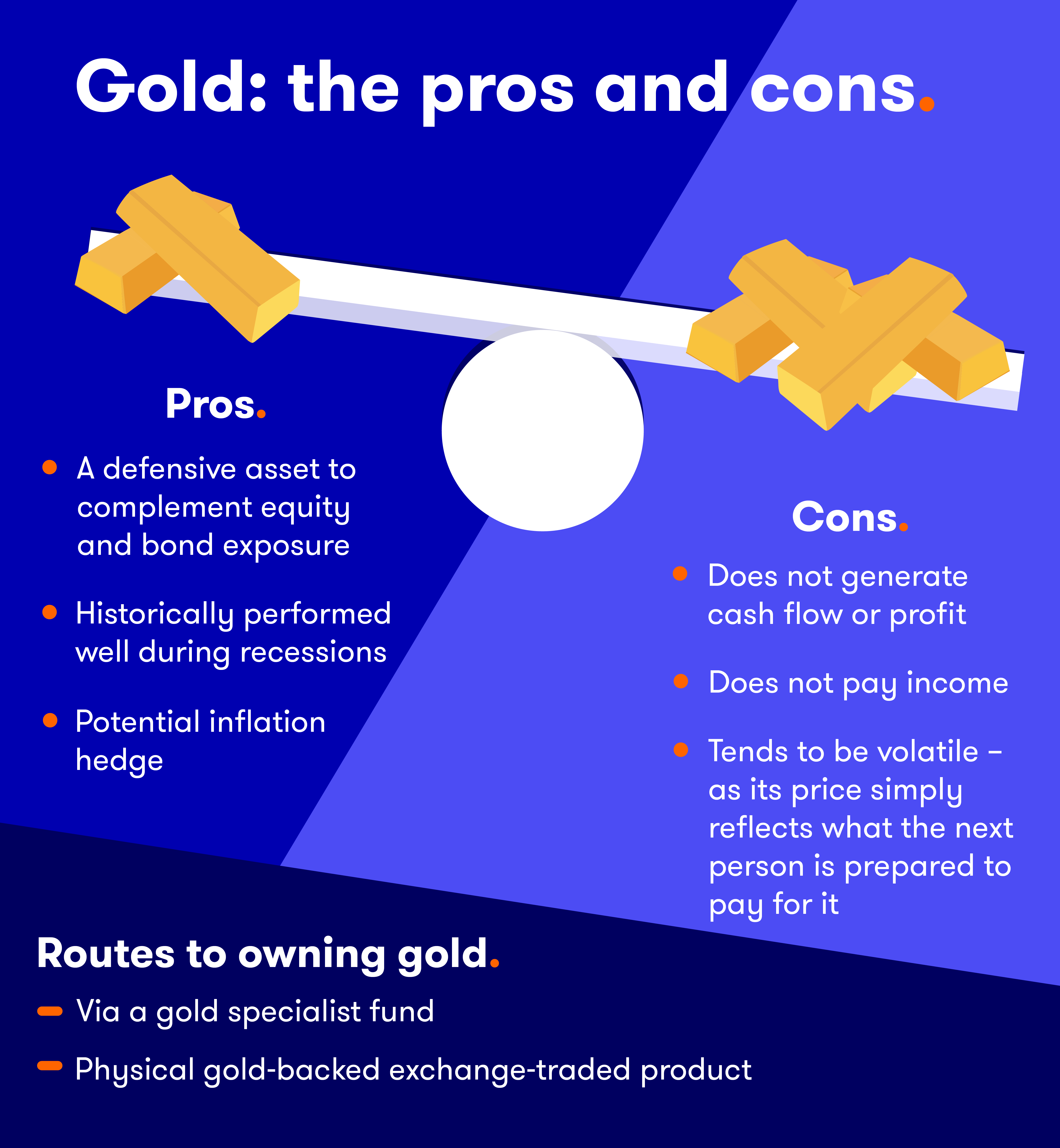Meet the ‘new FAANGs’ the pros are getting excited about
23rd March 2022 10:26
by Sam Benstead from interactive investor
Tech stocks are out; instead these five sectors of the market have been tipped as the next big winners.

Investors love an acronym. From referring to the biggest emerging markets as the BRICs (Brazil, Russia, India and China), to naming America’s leading technology stocks the FAANGs (Facebook, Apple, Amazon, Netflix and Google), they neatly sum up a hot investment theme and help generate buzz around it.
Bank of America, an investment bank and research firm, thinks there is a new acronym investors should be aware of: FAANGs version two.
Standing for Fuels, Aerospace, Agriculture, Nuclear and renewables, and Gold and minerals, it represents the business sectors benefitting from geopolitical tensions in Europe, as well as the winners from the race to secure energy independence from Russia and develop more renewable energy.
Lauren Sanflilippo and Joseph Quinlan, investment strategies at Bank of America, said: “The original FAANG acronym was made up of company-specific tech leaders that enjoyed sustained growth over the last decade as the economy increasingly digitalized—and then thrived—over the pandemic.
“FAANG 2.0 reflects a new world of geopolitical risks and resource/hard asset intensity. It’s within these areas of the market that we find future value given the defining market rotations we expect.”
- Commodities shock: wild times as scarcity looms
- The pros are fleeing to cash and buying commodities as markets plunge
- The funds and investment trusts to profit from the energy revolution
The researchers argue that geopolitical tension, strong demand for oil and gas coupled with low supply, and underinvestment in new reserves, will keep fossil fuel prices high. They add that the sector had lots of room to grow as it only accounts for 3.7% of the S&P 500 Index compared with 13.4% in 1990.
Defence stocks, which fall under the aerospace bucket, have beaten the US market by 19 percentage points so far this year and will continue to perform well as countries prioritise their armed forces, Bank of America notes.
On agriculture, it said the planet needs to produce more food in the next forty years than it has in the past 8,000 years, which will be great for shares in farming companies. Russia supplies about 20% of the world’s wheat exports and Ukraine about 10%, which has made meeting that demand even more challenging.
Nuclear and renewable energy provide clean power and are an alternative to Russian oil and gas energy, so their future is rosy according to Sanfilippo and Quinlan.
They add that gold is a haven that has profited from war in Europe, rising 5% this year, and minerals, such as lithium and nickel, are essential to the transition to electric vehicles and battery power, so demand – and prices – will keep rising.
“The electric vehicle transition will be mineral intensive. A typical electric vehicle requires six times the mineral inputs of a conventional car and the high-mineral intensity required for batteries could imply 40-times current lithium demand by 2040,” Sanfilippo and Quinlan said.
- How to play the market rotation: fund, trust and ETF ideas
- Ian Cowie: battery trust play for shift away from Russian energy
Experts favour mining and oil stocks
Gregory Perdon, chief investment officer of wealth manager Arbuthnot Latham, said of the five themes, oil and mining stocks were the best investments.
“Boycotts on Russian oil and gas will cause a big supply shortage and keep prices elevated. The International Energy Agency expects Russian oil supply to drop 25%. It is about 12% of the global oil market, so that is a big impact.
“While it would be great if everyone used less energy, I don’t think consumption will change much, so prices will go up,” he said.
Perdon adds that while renewable energy is the future, defence spending will take priority for governments ahead of achieving net zero fossil fuel emissions. On top of that, he notes that clean energy stocks are very expensive relative to profits.
Therefore buying mining companies and commodities directly is the best way of playing the green energy transition, he argues.
He said: “Mining stocks supplying the clean energy transition would be beneficiaries and are much better priced. Metal consumption is going to go up as more and more people switch to electric vehicles.”
- Video: Russia, Ukraine and the mining sector
- Video: Inflation, dividends and a new commodities supercycle
He disagrees with Bank of America's view on gold, noting that the previous metal has only risen 5% this year even though war broke out in Europe. Interest rates are more important for its price, he argues.
Perdon said: “Gold is not the place to be as rates rise as it pays no interest. On top of that, we expect to see a decrease in geopolitical tension which would also not help gold.”
Peter Sleep, senior investment manager at 7IM, is also positive about the resources sector. He said: “Mining and oil stocks are cheap at the moment relative to earnings. There has been a lack of investment in new resource deposits which is making commodity prices go up.
“While the war in Ukraine has exacerbated commodity prices rises, we are in a normal market cycle for raw materials. A period of under investment is now being hit with higher demand. Eventually however this leads to more investment and supply and therefore lower prices.”
Be wary of acronyms
Sleep warns that investors should be sceptical of flashy new acronyms and do their own research on companies rather than blindly following investment themes.
“Always look out for catchy marketing terms. They are generally profitable for the stockbroker or investment manager and not for the end investor.
“Investing based on an acronym is a bit like investing in a thematic fund. They promise a lot but plenty of ‘hot’ thematic investment ideas crashed last year, such as clean energy funds,” he said.
However, Sleep adds that Bank of America’s FAANGs version two is different to most thematic investment approaches as the shares are generally cheaper and could be part of a value investor’s universe.
- When markets fall heavily, here's what to avoid doing
- Energy independence: shares to benefit from green energy boom
He concluded that while some areas of the new FAANGs may make good investments, the key for DIY investors is to carry out their own research and not blindly buy a catch-all investment approach.
“Thematic investing should be a small part of a diversified portfolio. Be sceptical!” he said.
Perdon is more positive about acronyms, saying they have a place as they help investor understand a theme.
“It’s a mental short cut that makes investing simpler and faster, so long as investors do their own research and keep a diversified portfolio,” he said.
Dzmitry Lipsky, head of fund research at interactive investor, says three funds stand out as ways to access the new FAANGs.
For aerospace, he picked out the Seraphim Space investment trust. Launching last year, it buys public and private companies involved in space, from satellite firms to radar companies.
To profit from growing demand for food, he says Sarasin Food and Agriculture Opportunities is worth considering. The £275 million strategy buys companies involved in the entire food chain, from farming to food delivery. Investments include tractor company Deere & Co and online grocer Ocado.
For exposure to gold, he suggests Jupiter Gold and Silver. The fund buys physical gold and silver bars but also mining stocks, making it more volatile but potentially more profitable than a fund that just owns the precious metals.

These articles are provided for information purposes only. Occasionally, an opinion about whether to buy or sell a specific investment may be provided by third parties. The content is not intended to be a personal recommendation to buy or sell any financial instrument or product, or to adopt any investment strategy as it is not provided based on an assessment of your investing knowledge and experience, your financial situation or your investment objectives. The value of your investments, and the income derived from them, may go down as well as up. You may not get back all the money that you invest. The investments referred to in this article may not be suitable for all investors, and if in doubt, an investor should seek advice from a qualified investment adviser.
Full performance can be found on the company or index summary page on the interactive investor website. Simply click on the company's or index name highlighted in the article.